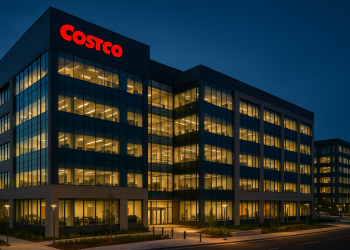No products in the cart.
The Rise of Space Economy Careers: How Aerospace Jobs Are Shaping Futures
The booming space economy is redefining career paths in the aerospace sector, especially for young professionals in India and the USA.
City, USA — In a world where space is no longer the final frontier but a bustling marketplace, the careers linked to the aerospace industry are skyrocketing into new dimensions. Once the realm of science fiction, the space economy is now a tangible sector, with an estimated global market value exceeding $1 trillion by 2040. This boom is not just affecting the major players like NASA and SpaceX but is also creating ripples in regions as diverse as Bengaluru, India, and Cape Canaveral, Florida.
The call for skilled workers in this industry is louder than ever. With the rise of commercial space exploration, satellite technology, and space tourism, opportunities for young professionals are expanding beyond traditional engineering roles to include fields like data analysis, project management, and even marketing. As a case in point, India has seen a surge in startups focusing on satellite technology, creating a vibrant ecosystem for innovation and job creation.

The intersection of technology and ambition is evident in stories like that of 28-year-old Neha Sharma from Bengaluru. After graduating with a degree in aerospace engineering, Neha joined a startup focused on developing low-cost satellite technology. “I always dreamed of working in space,” she says, her eyes sparkling with enthusiasm. “Now, I’m part of a team that’s making space accessible to everyone.” Neha’s journey is emblematic of a larger trend where young professionals are not just dreaming about the sky; they are reaching for it.
The rapid pace of innovation means that educational institutions must adapt their curricula to keep up with industry needs.
Yet, as these new careers emerge, they also invite a spectrum of challenges. The rapid pace of innovation means that educational institutions must adapt their curricula to keep up with industry needs. Universities are beginning to partner with businesses to create hands-on programs that prepare students for the realities of the space economy. For example, the Massachusetts Institute of Technology (MIT) has launched new programs focused on artificial intelligence in aerospace applications, reflecting the growing need for interdisciplinary skills.
However, this transition isn’t without its critics. Some experts argue that the focus on space exploration distracts from pressing issues on Earth, such as climate change and social inequality. “Investing in space technology is great, but we must not forget our responsibilities here,” cautions Dr. Alan Grant, a prominent environmental scientist. His perspective highlights a critical counterpoint in the discourse surrounding the space economy. The balance between exploration and sustainability will be a key theme as we move forward.
Moreover, as companies like Blue Origin and Virgin Galactic promote space tourism, they are not only changing the landscape of the aerospace industry but also inviting questions about accessibility. Will these opportunities be available to a diverse demographic, or will they remain the privilege of the wealthy? The answer may lie in the policies that governments implement today. Initiatives that encourage diversity and investment in education will be crucial in shaping who gets to participate in this new economy.
As we look ahead, the space economy is poised to create a new generation of jobs that blend creativity with technical prowess. For those considering their career trajectories, this is an opportune moment to explore fields that may have seemed distant just a decade ago. Young professionals should consider internships in startups and established companies alike, seek mentorship from industry veterans, and stay abreast of technological advancements. The future is not just about having a seat at the table; it’s about building the table.
In conclusion, the burgeoning space economy offers a plethora of opportunities that are reshaping traditional career paths. It beckons young minds from all corners of the globe to engage with this frontier, encouraging innovation and collaboration. The challenge will be to ensure that as we reach for the stars, we also uplift our communities on Earth, creating a more equitable and sustainable future.










